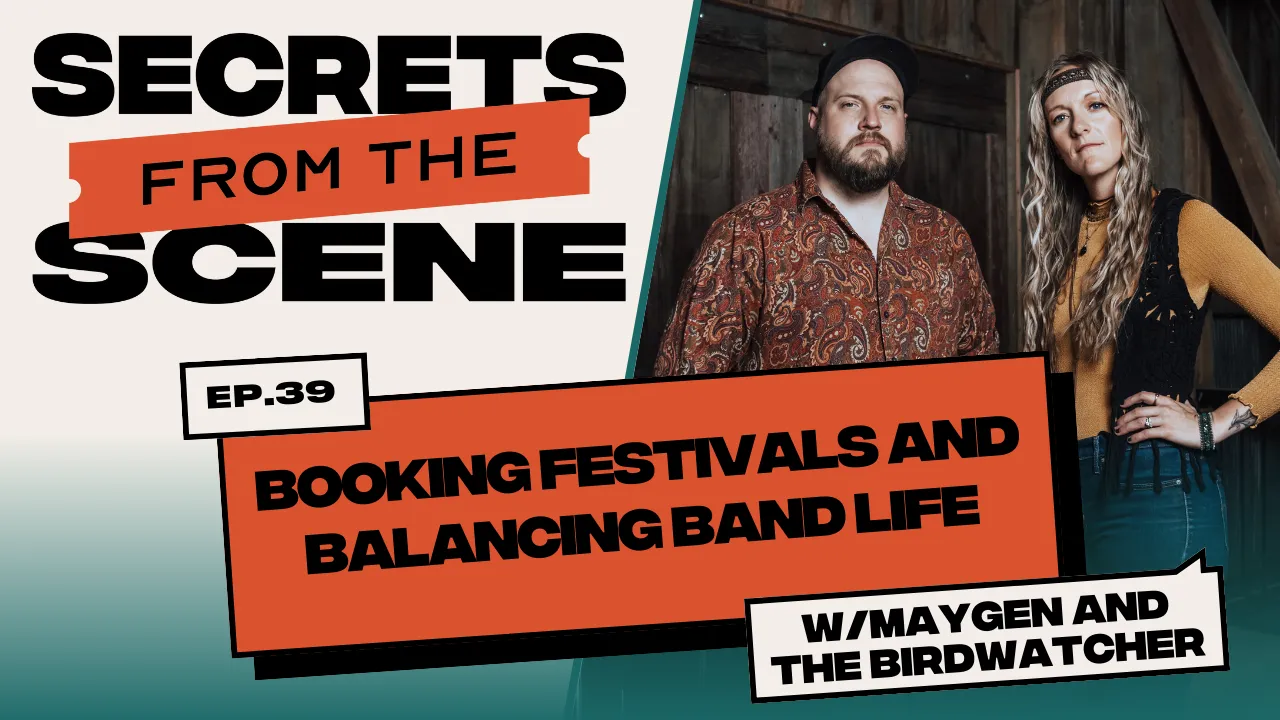Show Notes
Have you ever wondered what it takes to successfully book festival gigs? I sit down with Maygen Lacey and Noah Neumann from the band Maygen and the Birdwatcher to explore just that.
In this episode, Maygen and Noah share their journey as an independent band, offering valuable insights into the strategies they use to secure festival spots. We also discuss the challenges of maintaining a band once you get those coveted gigs, especially when your band members have families and day jobs. The logistics of balancing ambitious band goals with personal commitments is an often overlooked detail until the problem is staring you in the face.
Along the way, Maygen discusses practical tips on networking and the importance of staying top of mind with festival bookers. At the same time, Noah highlights the significance of maintaining a positive attitude and being flexible, especially when it comes to using substitute musicians to keep the band's schedule on track.
Their experiences shed light on the behind-the-scenes work that goes into leading a band with various members' commitments and priorities. They emphasize the importance of consistent follow-ups, leveraging social media, and hard work in achieving success as an independent group.
Tune in and enjoy!
watch now on YouTube:
Episode Links and Mentions
Connect with the Guest
Featured Song
Connect with Me
Give Feedback
📬 Send me a message: stephen@secretsfromthescene.com
💬 Suggest a guest or topic: podcast@secretsfromthescene.com
🎙️ Brought to you by:
--------------------------------
Thank You
This podcast is made possible by the hard work, expertise, and commitment of my team:
Max Greene and Joey Biehn. I'm forever grateful.
--------------------------------
Theme Music: "Thankful" Courtesy of LUEDVIG

